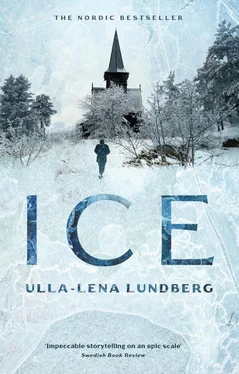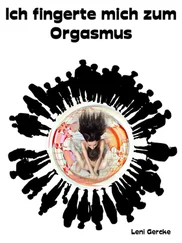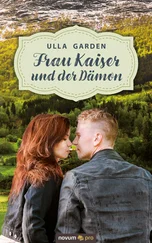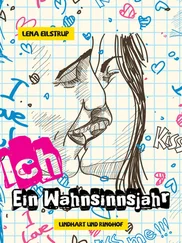However much Sanna watches over Lillus and however hard she finds it to believe that Lillus could survive without her big sister, she abandons her nevertheless when she and Papa go out for a walk. They wander around Church Isle and look at plants and birds and Sanna learns all their names. They climb hills and jump on rocks and splash in the water, and as they walk Papa talks about things that he knows all too well what Mona would think of. Like this business of studying. “It’s remarkable,” he says to Sanna, “but after all the trouble I had studying for my pastoral exam, which was sometimes terribly boring, I still have a desire to study. Not theology but something else. Botany, for example. Someone could make a terrifically interesting study of the flora in a well-grazed landscape like this one. You could have ungrazed areas as test sections for comparison. My suspicion is that an intensively grazed landscape will have a greater diversity of plants, whereas in the ungrazed area just a few dominant species will take over. It would be fascinating to study the way plants adapt to intensive grazing. The ones that manage to bloom have to grow low and fast, maybe creep along the ground. Where the soil is shallow, the way it is here, it dries out quickly, so the species that survive have to be better than average at tolerating dry conditions. It’s questions like that that interest me! Would you like to be my assistant? That means my helper. What do you think?”
“Yes!” says Sanna, where Mona says, “Don’t you think you have enough to do? When you were finally done with your pastoral exam I thought we’d get a little rest on that front.” True, true, but Sanna says, “Yes!” Willing, full of love, her hand lies in his. All right then! Botanical assistant it shall be.
But then he goes on thinking out loud. “But even more, I think I’d like to get into ethnology. What an unbelievable field of study the Örlands could be! In fact, I have a unique opportunity to get to know people here and to understand how they think. What other job lets you go into people’s houses and get to know people the way I can do as a priest? You know what? I think I’ll study ethnology as an academic discipline and have botany as a side interest, just for the fun of it.”
“Yes!” says Sanna.
“Thanks,” says Papa. “As soon as we’ve got a motorboat and a horse and the bridge is finished and everything gets much easier, then we can start. I’ve got lots of ideas about what I could write my dissertation on. People’s ideas about signs and omens, for example. The old skin-clad men who warn of dangers, dreams that carry messages. Those kinds of things. The closest word is folklore, but I could also write about information-sharing in a rural community. Communications are difficult and everything is far away, and yet when something happens, word spreads like wildfire. Of course the telephone has a lot to do with that, but what’s interesting is that it was probably the same way before the Örlands had telephones. If people call each other in a certain pattern then I’d guess that same pattern was the basis of information-sharing even before the telephone. Family relationships are decisive here, and my hypothesis is that newcomers without family ties remain far outside the well-established information networks. But I have to test the theory and be able to prove it. There are an incredible number of interesting dissertation possibilities just here on the Örlands. It’s a small, defined area, in the winter it’s even isolated. It’s fantastic that all this is here just waiting for me!”
“Yes!” says Sanna. She looks at him earnestly and understands that he’s talking about important things and she’ll be allowed to be part of it as his assistant. His hand is warm, his voice deep, but then he sighs.
“But where will I find the time? Mama and I have way too much to do, and we never get enough sleep. We can’t go on like this indefinitely. And yet I’d still like to find a new subject to study, now that I’m finished. Do you think I’m out of my mind?”
Sanna stops and laughs, and Papa starts laughing too. “Oh well,” he says. “You’ve got to have plans for the future, even when you don’t know how you’re going to make them happen. Come on, let’s go get those perch from the live box and clean them like Mama asked us to.”
As if to prove his hypothesis about the way information travels on the islands, a large quantity of smuggled liquor arrives on the Örlands, and the parsonage is the last place to hear about it.
If the priest hadn’t come cycling to the store on a perfectly ordinary Wednesday afternoon, they would never have had to know that a large cargo had been dumped in the outer archipelago and taken in hand by local Örlanders, this news having made a detour around the Coast Guard, the parsonage, and the police. The scene was utterly peaceful as he approached on his bike. For some reason, the phrase “pastoral idyll” crossed his mind—peacefully grazing cows, no visible activity anywhere, woolly clouds in the sky, a benevolent sun shining down on all of it. Like life on earth before the Fall, he thought, smiling, and the faces he began to see as he pedalled into the largest of the west villages beamed with goodwill and bonhomie. Down by the village harbour they were remarkably stationary, sat where they sat, waved slowly and royally in answer to his greeting. Like a quiet Sunday in the middle of a weekday.
What was it they put down in the grass when he came? They were clearly on some kind of break, half sitting or half lying down, and they made no effort to rise or get busy with something when he came. One of them started to sing and the others hushed him but burst out laughing. Their good spirits were perfectly normal. Their particularly good spirits were not.
“May I sit down?” the vicar asked. “Please do,” they said, as they always did. But they laughed and wouldn’t look at him.
“Would I be wrong if I guessed that something amusing has happened?” he said.
They glanced at each other furtively and their bellies bounced with mirth. One young smart aleck said, “Yesterday’s catch was a little better than usual.” They lay back on their elbows and guffawed. The phrase “drunk with laughter” occurred to the vicar, and then simply the word “drunk”. Quite simply, plastered. Drunk as lords, or maybe not—able to talk but clearly unsteady on their legs.
A tough situation for the priest, who was seen as a kind of authority figure and who might be expected to report them. He found himself in a situation where he didn’t belong and wasn’t welcome but where the level of inebriation led to his being cordially received. He couldn’t just get up and leave, so he said, breezily, “Fish with corks and labels, sounds like. Fish that sort of gurgle.”
They laughed till they cried. And of course one of them, in accordance with the rules of hospitality, asked if he wanted a taste. They looked at him expectantly. His answer would show what calibre of priest they had. Whether they could feel respect for him. They wanted him to have a drink with them, but on the other hand, if word got around that he sat tippling with the men that time the load of liquor came in, he would never be able to regain their respect for his office. “Thanks for the offer,” he said. “But I catch my own fish.”
There was no great reaction to this statement, and he started to walk to his bicycle. “Have a pleasant day,” he said in farewell. “And congratulations on your catch.”
For the first time, he felt like a total outsider. Who should have had the sense to stay away. He did his shopping at the Co-op without seeing Adele and biked straight home. Both Coast Guard cutters lay at their dock, he noticed, neither out on patrol. He heard later that both Brage and the police had been at home and invisible, seized with a sudden strong yearning for the home fires and old newspapers that needed to be read from cover to cover.
Читать дальше













